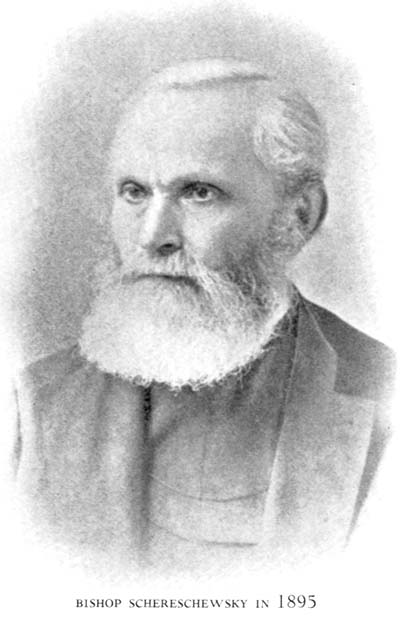Previously:
- Vorvort (Foreword): 1 2 3 4 5 6 7 8 9
- Inhaltverzeichnis (Table of contents) 10
- 1. Die Teure Gnade (1. Costly Grace) 11 12 13 14 15 16 17 18 19 20 21 22 23 24 25 26 27 28 29 30 31 32 33
- 2. Der Ruf in die Nachfolge (2. The Call to Discipleship) 34 35 36 37 38
Nachfolge ist Bindung an Christus; weil Christus ist, darum muß Nachfolge sein. Eine Idee von Christus, ein Lehrsystem, eine allgemeine religiöse Erkenntnis von der Gnade oder Sündenvergebung macht Nachfolge nicht notwendig, ja schließt sie in Wahrheit aus, ist der Nachfolge feindlich. Zu einer Idee tritt man in ein Verhältnis der Erkenntnis, der Begeisterung, vielleicht auch der Verwirklichung, aber niemals der persönlichen gehorsamen Nachfolge.
Discipleship is a bond to Christ; because Christ is, therefore there must be discipleship. Any idea of Christ, a doctrinal system, a universal religious confession of grace or forgiveness of sins that does not make discipleship necessary; indeed it excludes it in truth, it is hostile to discipleship. To an idea, one enters into a relationship of knowledge, of excitement, perhaps also of fulfilment, but never of personal obedient discipleship.
Ein Christentum ohne den lebendigen Jesus Christus bleibt notwendig ein Christentum ohne Nachfolge, und ein Christentum ohne Nachfolge ist immer ein Christentum ohne Jesus Christus; es ist Idee, Mythos. Ein Christentum, in dem es nur den Vatergott, aber nicht Christus als lebendigen Sohn gibt, hebt die Nachfolge geradezu auf. Hier gibt es Gottvertrauen, aber nicht Nachfolge.
A Christianity without the living Jesus Christ remains, necessarily, a Christianity without discipleship, and a Christianity without discipleship is always a Christianity without Jesus Christ; it is an idea, a myth. A Christianity, in which there is only God the Father, but not Christ as the living Son, absolutely abolishes discipleship. Here is trust in God, but no discipleship.
Allein weil der Sohn Gottes Mensch wurde, weil er Mittler ist, ist Nachfolge das rechte Verhältnis zu ihm. Nachfolge ist gebunden an den Mittler, und wo von Nachfolge recht gesprochen wird, dort wird von dem Mittler Jesus Christus, dem Sohn Gottes gesprochen. Nur der Mittler, der Gottmensch kann in die Nachfolge rufen. Nachfolge ohne Jesus Christus ist Eigenwahl eines vielleicht idealen Weges, vielleicht eines Märtyrerweges, aber sie ist ohne Verheißung. Jesus muß sie verwerfen.
Only because the Son of God became a person, because he is a Mediator, is discipleship the right relationship to him. Discipleship is bound to the Mediator, and where it is spoken of discipleship correctly, there it is spoken of the Mediator Jesus Christ, the Son of God. Only the Mediator, of God and man can call [us] into discipleship. Discipleship without Jesus Christ is a self-selection of a perhaps ideal way, perhaps a way of martyrdom, but it is without promise. Jesus must reject it.

